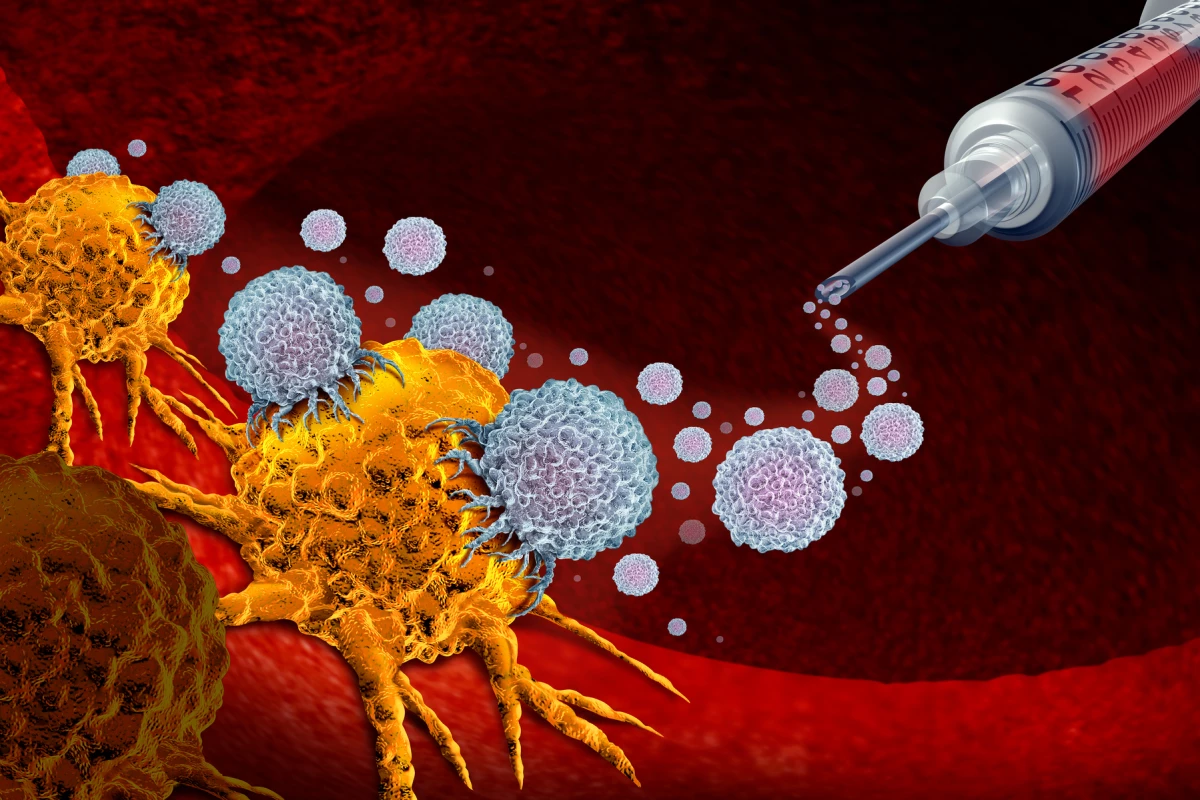New research published in the journal Nature is outlining the long-term efficacy of a novel type of cancer vaccine. The research followed eight skin cancer patients and discovered the experimental treatment offers durable and persistent immune responses to cancer cells up to four years later.
The type of personalized cancer vaccine being studied in the new research focuses on neoantigens, mutated molecules found only on the surface of cancer cells. To create a vaccine personalized to the individual patient, the researchers use blood and tumor samples to create a highly specific and customized treatment that helps the immune system target and destroy tumors.
Early results from the first trials for these personalized neoantigen cancer vaccines were incredibly positive. The initial tests focused on patients with melanoma who were identified as having a high risk for recurrence after having their tumors removed by surgery.
Catherine Wu, from the Dana-Farber Cancer Institute and co-lead on the neoantigen vaccine study, says the long-term data suggests incredibly promising responses, with immune cells not only remembering their primary tumor targets several years later but seemingly learning how to recognize new melanoma biomarkers not initially in the vaccine.
“These findings demonstrate that a personal neoantigen vaccine can stimulate a durable immune response in patients with melanoma,” says Wu. “We found evidence that the initial, targeted immune response has broadened over the years to provide patients with continued protection from the disease.”
This preliminary trial involved a very small cohort of eight patients. All patients were treated with the vaccine, called NeoVax, around 18 weeks after initial surgery to remove their tumors. Four years later all eight patients were still alive, and six were still in complete remission.
Soon after the initial treatment several years ago two of the patients displayed metastasized cancer in their lungs. These patients underwent immune checkpoint inhibitor therapy. Patrick Ott, co-lead on the research with Wu, says there were signs neoantigen-trained immune T cells were better targeting the metastasized tumors in those two patients.
“We found evidence of everything we look for in a strong, sustained immune response,” explains Ott. “T cells continued to specifically target melanoma cells and retained a memory of the epitopes they initially responded to. The T cells were activated to kill tumor cells and, critically, had diversified to target melanoma epitopes not included in the original vaccine.”
Personalized neoantigen cancer vaccines may be starting to deliver promising clinical trial results but perhaps the biggest hurdle they face moving to market is the time and expense they take to produce. A few years ago it was estimated producing a vaccine for one patient could take up to 10 weeks and cost about US$60,000.
Since then the technology has inevitably improved, making the personalized neoantigen process cheaper and faster but it will be challenging to create these kinds of customized vaccines for millions of cancer patients. Some researchers are already looking beyond personalized neoantigen treatments and working to find more universal cancer biomarkers.
The new study was published in the journal Nature.
Source: Dana-Farber Cancer Institute




